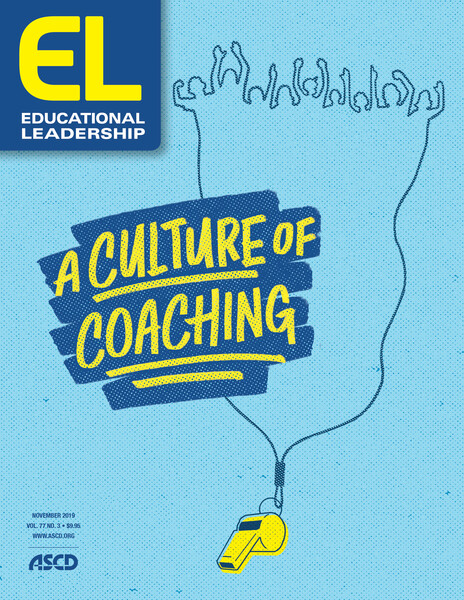Tell us about a coaching moment that changed your way of thinking.
Need for Coaching Has No Age
When you misplace your passion, teaching is just an everyday job. This is what happened to me one year ago. As an educator in my 25th year, I was having a hard time trying to survive an administration change and new curriculum implementation, and I lost the spark of excitement for teaching. So I found a new school and a new position that matched my educational philosophy and commitment to innovation and to student-centered, inquiry-led, and project-based learning.
While reigniting my passion, however, I found myself floundering for the first time in many years, trying to teach courses for the first time, incorporate technology in ways that I was not fully prepared for, and relate to colleagues that I felt no connection to. I used to be the coach, the mentor, the teacher associate for student teachers. However, now I found myself in need of a coach and mentor.
The newest teachers in the building came to my rescue. They not only helped me with all the technology and other issues I had when initially starting, but the collaborative sessions we had were reciprocal. We guided each other through the first semester trenches.
Coaching, mentorship, and collaboration has no age. The need for guidance is free of seniority, years of experience, and course content. We all need assistance for different reasons at different times. Teachers need to model what they teach their students every day—that it is OK to make mistakes and you must take risks when trying new things. In the end, you will have more than just newly acquired skills—you will have built long-lasting professional collaborative relationships.
—Joanne Weatherby, science secondary school teacher, Abbotsford School District, Abbotsford, British Columbia, Canada
A Head Full of Good Advice
Educational leaders, teachers, parents, business leaders, authors, friends, my own kids. All are mentors in some way. Inspiration manifests in the most surprising people if you are open to it. My way of thinking has changed because of a variety of mentoring moments. I've learned: If you don't ask, the answer is always no. I work for learners, not an organization. Stop talking about change and just start. Adopt the "what learners want" mentality. Honor strengths. Outsource weaknesses. When one door closes, new doors open exponentially. Curiosity drives learning. Organized chaos is joyful. Embrace quiet. Find your tribe and grow it. Everyone needs a mentor or four. A leader is not a boss. Fear is a necessary hindrance to very few things. Reflection is the key to learning. Don't overthink.
—Terri Broce, personalized learning coach, Tenth Dimension Learning, Miami, Florida
Listening and Questioning
I generally try to use listening and questioning skillfully to help colleagues discover their students' needs and, in turn, their own goals and intended actions. I see more powerful learning results if I help someone do their own thinking, rather than making suggestions or giving advice based on my own experience. But once, after an unusually non-productive exchange, a teacher pointedly asked me, "Don't you have any ideas that might help me?" She wasn't resistant to coaching, and we had a good relationship, but she was at the end of her rope, and what she needed was not what I was providing. Now I realize that how I coach isn't about what process I like, it's about what the other person needs.
—Laurie McCullough, executive director, Virginia ASCD, North Garden, Virginia






